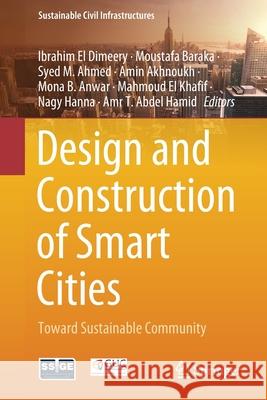Design and Construction of Smart Cities: Toward Sustainable Community » książka
topmenu
Design and Construction of Smart Cities: Toward Sustainable Community
ISBN-13: 9783030642167 / Angielski / Miękka / 2021 / 394 str.
Kategorie:
Kategorie BISAC:
Wydawca:
Springer
Seria wydawnicza:
Język:
Angielski
ISBN-13:
9783030642167
Rok wydania:
2021
Wydanie:
2021
Numer serii:
000806669
Ilość stron:
394
Waga:
0.56 kg
Wymiary:
23.39 x 15.6 x 2.11
Oprawa:
Miękka
Wolumenów:
01
Dodatkowe informacje:
Wydanie ilustrowane











